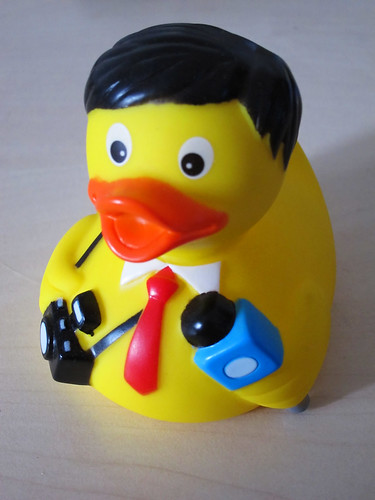Speaking with the media can be a wonderful opportunity to advocate for your organization but it can also be a double-edged sword if you do not have a clear understanding of some basic guidelines that should be followed. The tips below will help you to learn how to interact with reporters to ensure your message is portrayed in an accurate and successful manner.

One of the most important things to keep in mind regarding talking to any member of the media is that you should always make sure you ask questions prior to providing any answers. For example, find out what they are writing about, what type of information they want from you, how big the story will be, when the deadline for the story will be, etc.
Perhaps the most important tool you can have available to you when speaking with the media is discipline regarding your own speech. One of the biggest and most frequent mistakes that many people make is simply talking too much. Too many people tend to ramble. This is a problem because it provides too much flexibility to reports to pick and choose which part of what you said they actually use. When you are disciplined in your speech and speak in short and concise sentence you are able to take control and drive what is actually reported; not the reporter.
You will likely find that it can be quite helpful to spend some time researching talking points prior to speaking to the media. In addition, you should also rehearse interviews before you engage in them. Speaking cold or without practice places you at far too great of a risk of saying something you do not intend or getting off topic. The more time you spend planning any interaction you may  have with members of the media, the better prepared you will be when the time actually comes to give an interview.
have with members of the media, the better prepared you will be when the time actually comes to give an interview.
Finally; if you do nothing else; make sure you know your message and then stick with it. If you do not know which message you want to deliver before speaking with a reporter, you cannot honestly expect them to report what you want. Spend some time before you actually speak with any member of the media developing and then honing the message you want to focus upon. You will be glad of the practice and preparation time when you must sit down with a reporter. Our Advanced Media Relations Workshop offers more tips.
For more information, see the Media Relations Handbook by Bradford Fitch.
For more information about media training from TheCapitol.Net, see these resources:
- Media Relations Handbook, by Bradford Fitch
- Live courses in Washington, DC:
- Media Relations for Public Affairs Professionals: Media Relations 101
- Advanced Media Relations Workshop
- Effective Executive Briefings: The Art of Persuasion
- Capitol Hill Workshop
- Capitol Learning Audio Courses:
For more than 40 years, TheCapitol.Net and its predecessor, Congressional Quarterly Executive Conferences, have been teaching professionals from government, military, business, and NGOs about the dynamics and operations of the legislative and executive branches and how to work with them.
Our custom on-site and online training, publications, and audio courses include congressional operations, legislative and budget process, communication and advocacy, media and public relations, testifying before Congress, research skills, legislative drafting, critical thinking and writing, and more.
TheCapitol.Net is on the GSA Schedule, MAS, for custom on-site and online training. GSA Contract GS02F0192X
TheCapitol.Net is now owned by the Sunwater Institute.
Teaching how Washington and Congress work ™

